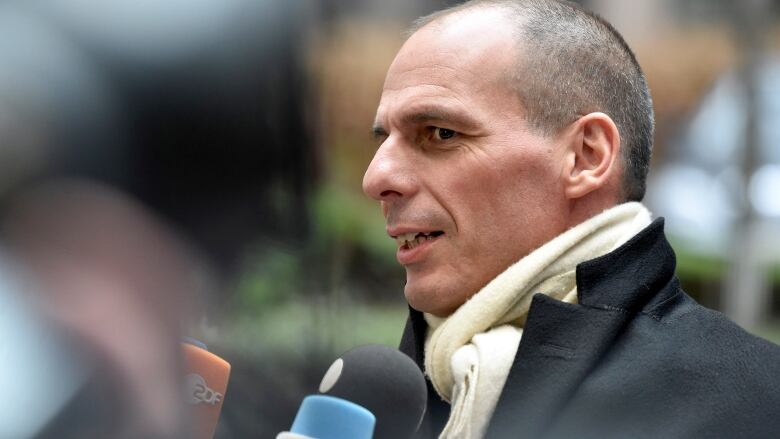Greece reaches deal with EU to extend bailout for 4 months
Eurogroup chairman says Greece will honour its obligations to creditors

Greece has reached an agreement with its European creditors that will extend its bailout for four months as it attempts to rework terms of the debt repayment.
Eurogroup chairman Jeroen Dijsselbloem said at a press conference in Brussels that Greece had given anunequivocal commitment to honour their financial obligations to creditors.
On Monday Greeceis to present a list of reform measures, which must then be approved by the major creditors the EU, the European Central Bank and the International Monetary Fund. The national governments of the 19 eurozone members must also ratify the terms.
Greecehas agreed not to take any measures that might prevent it from meeting repayment terms, and to fully fund any new spending measures from internal funds.
- Why Europe fears a Grexit more than a new bailout
- Keeping Greece in the eurozone is worth the pain: Don Pittis
Those commitments giveEU lenders a measure of control over Greek policymaking, but they also give the new government breathing room.
"Tonight was a first step in this process of rebuilding trust," Dijsselbloem said at a news conference. "We have established common ground again to reach agreement on this statement."
Greece had asked for a six-month extension of the bailout while it worked to turn around its moribund economy, but EU members insisted on four months.
The deal followed make-or-break talks between Greece andeurozonefinance ministers.
They began more than three hours late, delayed as German FinanceMinisterWolfgangSchaubleand his Greek counterpartYanisVaroufakisworked out a fresh compromise text.
Varoufakissays the deal means Greece won't have to cut pensions and will have more control over how it manages its money.
"We are no longer going to be following a script that has been given to us by external agencies," he said.
At the same time, Greece's new government has to explain by Monday what policies it's going to introduce while borrowing this money.
"We're going to work night and day between now and Monday in conjunction with the institutions to come up with something," he said.
The main task for newly elected Greek Prime Minister AlexisTsipraswill be to get the Greek electorate and radical members of hisSyrizaParty to accept the terms, analysts said.
Tsiprasswept to power last month on a pledge to ease the budget belt-tightening and reorganize the 240 billion ($340billion) bailout debt.
Will the Greeks like the deal?
Analysts in Athens are already describing the concessions made by the Greek government as "politically poisonous."
Any reforms will have to be endorsed by the Greek parliament.
The talk of an apparent breakthrough has helped the euro rally and U.S. stock markets to turn positive.
The Greek government waseffectively just a week away from having to fend for itself, as its debt deal with the EU expires Feb. 28.
Friday's emergency Eurogroup meeting, which included International Monetary Fund managing director Christine Lagarde and European Central Bank president Mario Draghi, is the third in just over a week. Financial markets have been gripped by the precarious negotiations.
"It has been a laborious but eventually constructive process," Lagardesaid after the meeting.
Without any further support, Greece faceddefaulting on its debts and an exit from the euro, a scenario that would likely devastate the Greek economy, at least in the short-term, and generate renewed uncertainty for the global economy.
With files from the The Associated Press












_(720p).jpg)


 OFFICIAL HD MUSIC VIDEO.jpg)
.jpg)



























































































